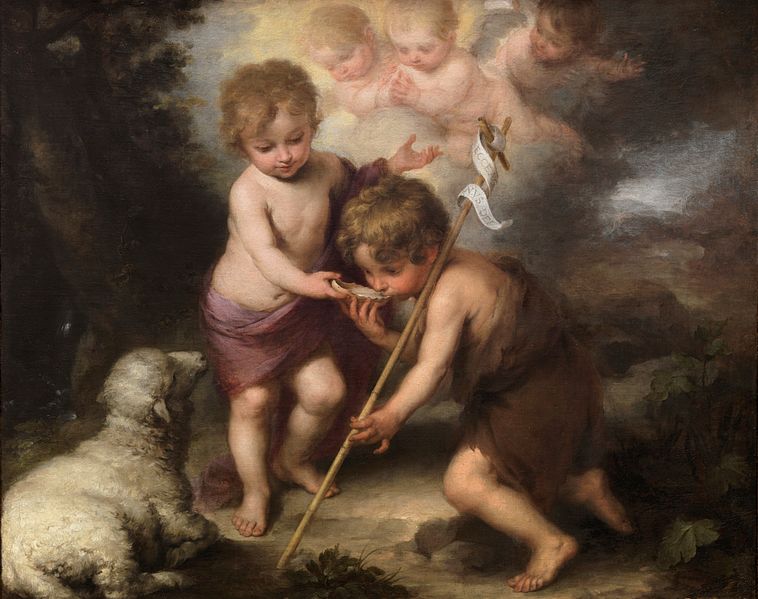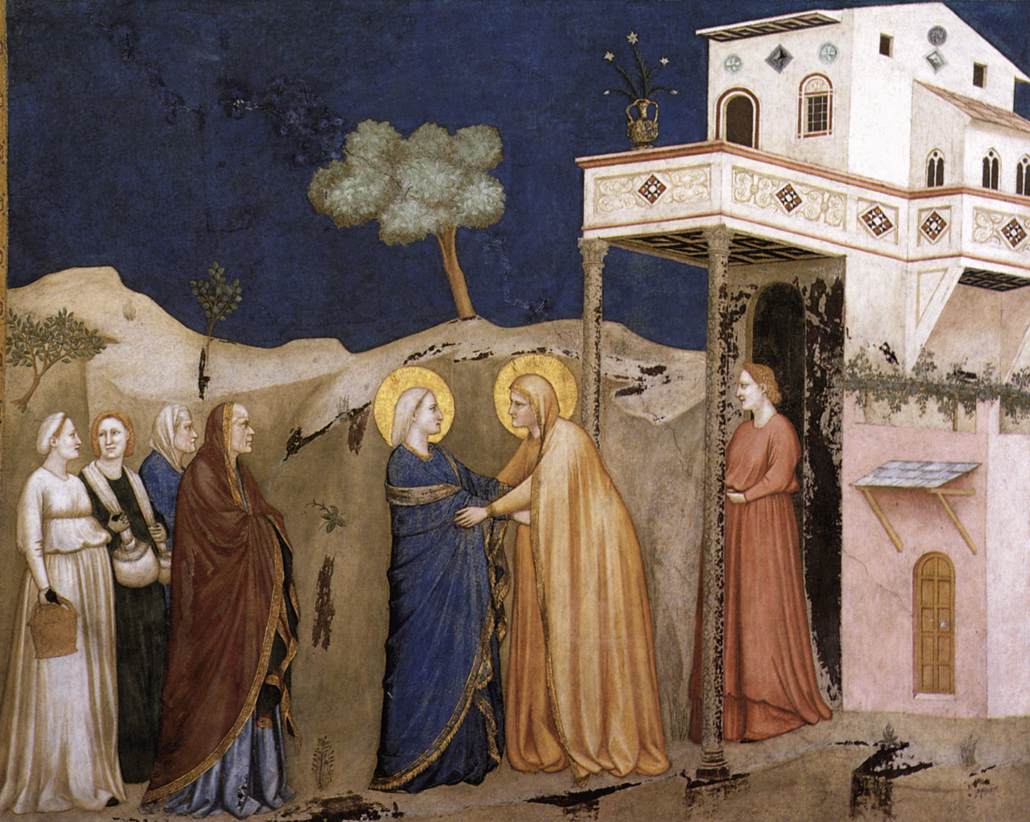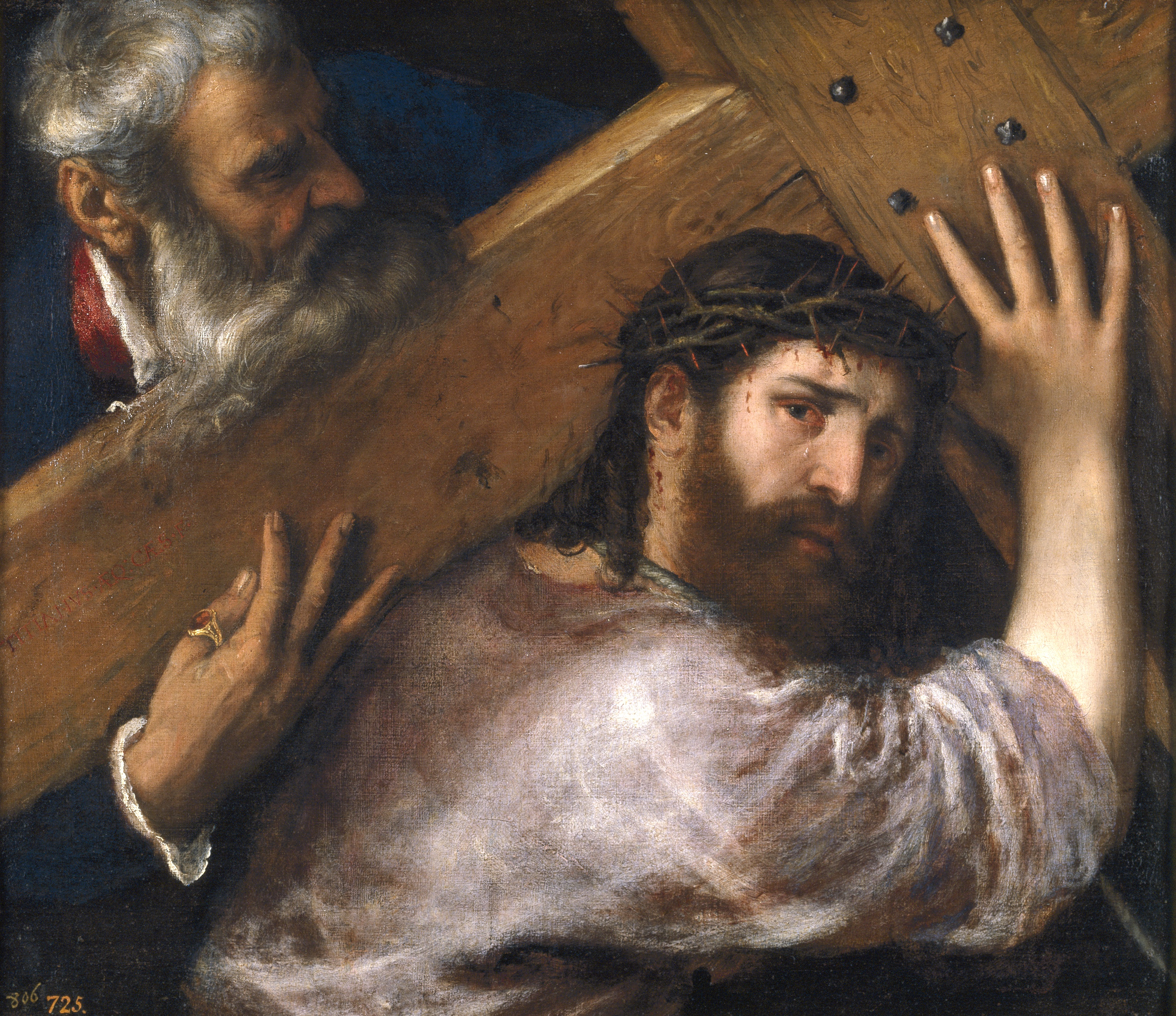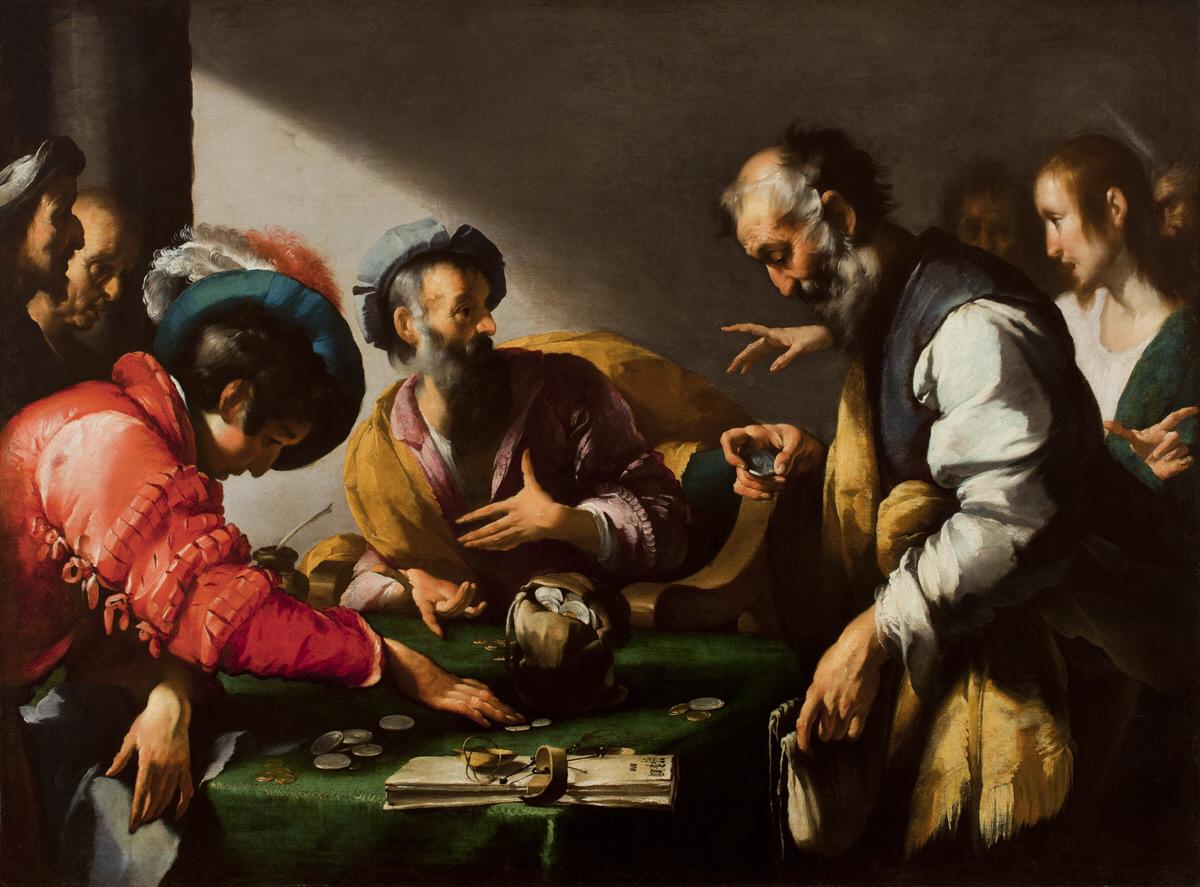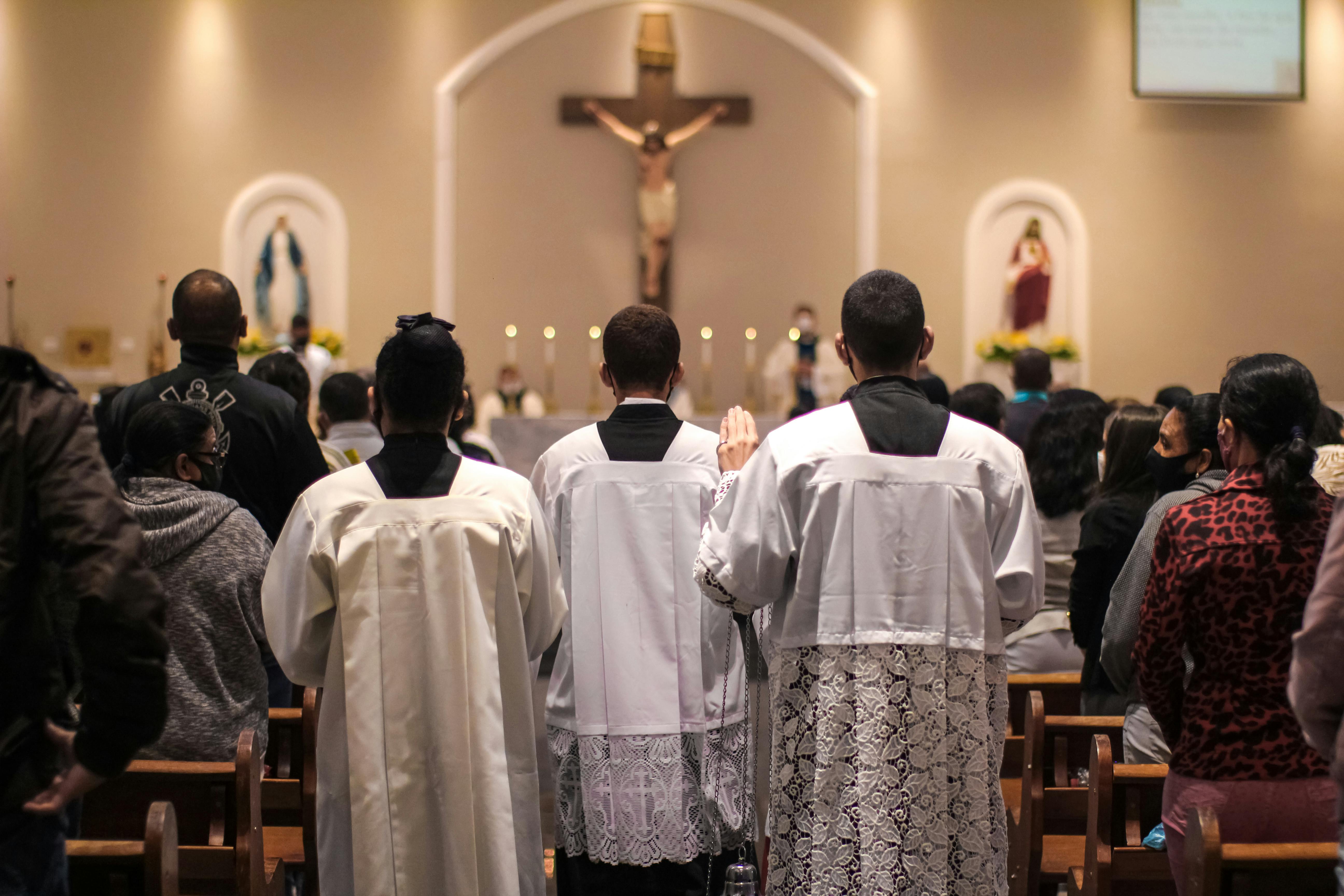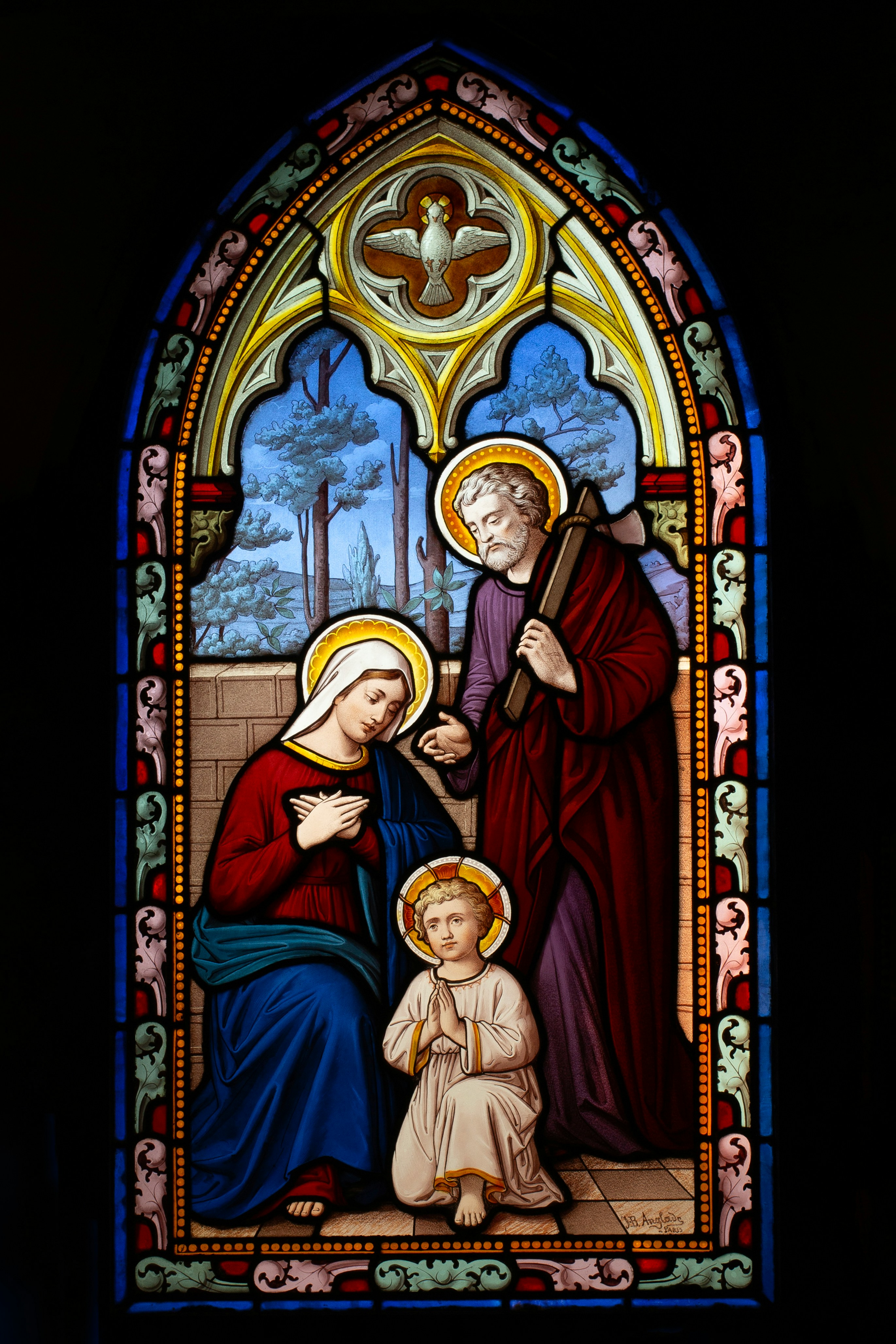“But to those who did accept him he gave power to become children of God.”
We are on the threshold of a new year yet still in the midst of the celebration of the birth of Our Lord, the Word made Flesh, God-with-us, Jesus, Prince of Peace and King of Kings.
These days around Christmas and New Years are often punctuated with more than the usual religious observance. Those who never come to Church except at Christmas have been flooded with the light of the Star and the radiance of the Child’s face, perhaps without even being aware that what they so deeply long for has been bestowed on them as a gift. Those of us who celebrate the Eucharist more often, or even weekly, have somehow had our hearts moved by the telling anew of the story that God so loved us that he chose to reach into our lives, to intervene in the history of humanity, in order to claim us as his children.
To “accept him” implies that someone else has given us something—or Someone—and we have the choice of receiving this gift. Every Advent-Christmas Season we take time to ponder and wonder at how God has chosen us before we have chosen him. How foolish are we who act as though we possessed the higher authority to tell God whether he was acceptable to us or not! No. We who were completely unacceptable were received by God through a free act of his mercy.
Christmas reminds us, as does the Prologue of John read at Mass today, that God’s love to us is completely unmerited, often unsought, sometimes not accepted. Yet God, year after year reminds us of his free choice for us, his marvelous gift, his magnanimous generosity to shower us with grace upon grace.
I like to think of Christmas as a rehearsal for our performance in the upcoming new year. At Christmas we rehearse in a sacred season what we should live out in the more profane spaces of our life. God chooses us and we learn to choose others in love and self-sacrifice in the world. God comes to us in the vulnerability and humility of a Babe, and we find the courage to proclaim and to live the beauty of virtues that have been rejected by the society around us. God lifts us up and we find ourselves seeking ways to lift up the world around us, the people, nature, media, so that others might one day receive and accept what we have been so extravagantly given, we who do not deserve such generosity.
And finally, with our eyes shining with the radiance of the Star and the beauty of the Child’s Face we proclaim that there is more to life than what we see around us, what impinges on our wellbeing, what threatens our futures. God cares. God is here. God gives himself to us that we might be saved even from our very selves. And that is why today we say both Have a Blessed Christmas and a Happy New Year!
“Pero a todos los que lo recibieron les concedió poder llegar a ser hijos de Dios.”
Estamos en el umbral de un nuevo año pero todavía en medio de la celebración del nacimiento de Nuestro Señor, la Palabra hecha Carne, Dios-con-nosotros, Jesús, Príncipe de Paz y Rey de Reyes.
Estos días alrededor de Navidad y Año Nuevo a menudo están marcados con más de la observancia religiosa habitual. Aquellos que solo van a la Iglesia durante las Navidades han sido inundados por la luz de la Estrella y el resplandor del rostro del Niño, quizás sin darse cuenta de lo que tanto anhelan les ha sido otorgado como un don. Quienes celebramos la Eucaristía más a menudo, o incluso semanalmente, de alguna manera nos ha conmovido el corazón al contar de nuevo la historia de que Dios nos amó tanto que eligió entrar en nuestras vidas, intervenir en la historia de la humanidad, para reclamarnos como sus hijos.
“Recibir” implica que alguien más nos ha dado algo, o Alguien, y tenemos la opción de aceptar este regalo. Cada temporada de Adviento-Navidad nos tomamos un tiempo para reflexionar y preguntarnos cómo Dios nos ha elegido antes de que lo hayamos elegido. ¡Qué necios somos los que actuamos como si tuviéramos la autoridad superior para decirle a Dios si Él era aceptable para nosotros o no! No es así. Nosotros, que éramos completamente inaceptables, fuimos recibidos por Dios mediante un acto gratuito de su misericordia.
La Navidad nos recuerda, como lo hace el Prólogo de Juan leído en la Misa de hoy, que el amor de Dios por nosotros es completamente inmerecido, a menudo no buscado, a veces no aceptado. Sin embargo, Dios, año tras año, nos recuerda de su libre elección por nosotros, su maravilloso don, su magnánima generosidad para colmarnos de gracia sobre gracia.
Me gusta pensar en la Navidad como un ensayo para nuestro comportamiento durante el nuevo año. En Navidad ensayamos durante un tiempo sagrado lo que debemos vivir en los espacios más profanos de nuestras vidas. Dios nos elige y nosotros aprendemos a elegir a los demás en amor y abnegación en el mundo. Dios viene a nosotros en la vulnerabilidad y la humildad de un Niño, y encontramos el coraje de proclamar y vivir la belleza de las virtudes que han sido rechazadas por la sociedad que nos rodea. Dios nos levanta y nos encontramos buscando formas de levantar el mundo que nos rodea, la gente, la naturaleza, los medios de comunicación, para que otros algún día puedan recibir y aceptar lo que se nos ha dado tan extravagantemente, nosotros que no merecemos tanta generosidad.
Y finalmente, con nuestros ojos brillando con el resplandor de la Estrella y la belleza del Rostro del Niño, proclamamos que hay más en la vida que lo que vemos a nuestro alrededor, lo que afecta nuestro bienestar, lo que amenaza nuestro futuro. A Dios le importa y Dios está aquí. Dios se da a sí mismo para salvarnos incluso de nosotros mismos. Y es por eso que hoy decimos ¡Feliz Navidad! y ¡Feliz Año Nuevo!

Sr. Kathryn James Hermes, FSP, is an author and offers online evangelization as well as spiritual formation for people on their journey of spiritual transformation and inner healing. Website: www.touchingthesunrise.com My Books: https://touchingthesunrise.com/books/
Public Facebook Group: https://www.facebook.com/groups/srkathrynhermes/ HeartWork Spiritual Formation Group: https://touchingthesunrise.com/heartwork/
Feature Image Credit: David Trinks, unsplash.com/photos/a-statue-of-a-child-with-a-blanket-on-its-head-XjynBYpg_Bo

